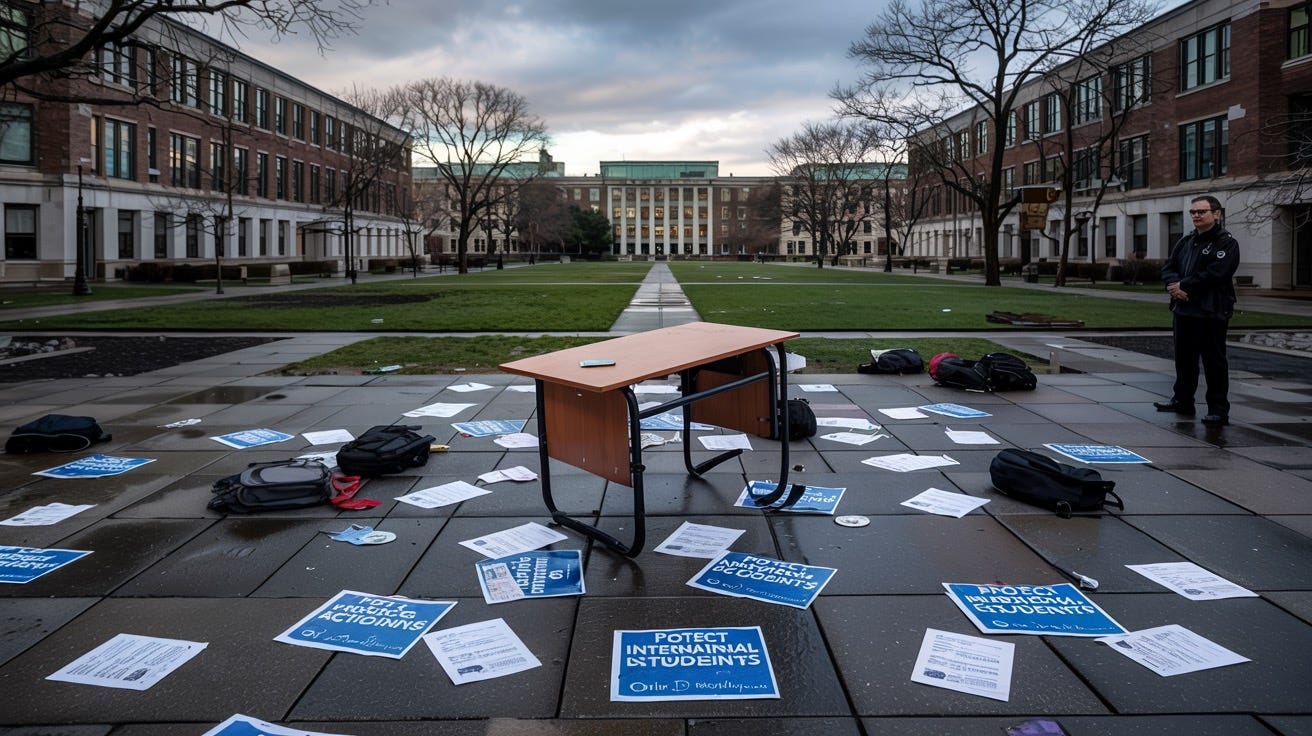A wave of uncertainty and anxiety has swept through international student communities and the U.S. institutions that host them. Recent actions by U.S. Immigration and Customs Enforcement (ICE) involving the abrupt revocation of student visas and termination of their legal status records – often without warning – have caused significant disruption and raised serious due process concerns. While subsequent legal challenges appear to be forcing a reversal of many of these actions, the situation highlights critical misunderstandings about immigration status and underscores the vital support role universities must play.
Visa vs. Status: A Crucial Distinction
First, it's essential to understand the difference between a student visa and a student's legal status, maintained through the Student and Exchange Visitor Information System (SEVIS).
Student Visa (F-1 or M-1): This is the physical document, like an entry ticket, allowing a student to request admission to the U.S. for study. (U.S. Dept. of State - Student Visa Info)
SEVIS Record / Legal Status: This is the electronic record confirming a student is actively enrolled and complying with the terms of their stay (e.g., full course load, authorized employment only). This status is what allows them to remain legally in the U.S.
Critically, as guidance documents emphasize, revoking a student's visa does not automatically terminate their legal status if they are already inside the U.S. However, a revoked visa prevents future entry. Conversely, terminating a student's SEVIS record does mean they lose their legal status in the U.S.
The Recent Crisis: Abrupt Terminations and Lack of Notice
The recent turmoil stems from ICE terminating students' SEVIS records, effectively stripping them of their legal status. Reports suggest these actions were often linked to findings in the National Crime Information Center (NCIC) database, a system containing criminal justice information. The most alarming aspect, echoed in online forums, was the lack of notification. Students and their Designated School Officials (DSOs) – the university staff responsible for managing SEVIS records – were often left completely unaware until potentially facing detention or removal proceedings. This lack of transparency immediately raised red flags about due process.
Reversal and Policy Gaps Emerge
Facing legal challenges, ICE appears to be backtracking. According to AP News reports and statements from government lawyers in court, ICE is now "manually restoring the student status for people whose records were terminated in recent weeks" based solely on these NCIC findings.
Furthermore, a government lawyer stated that "ICE is developing a policy that will provide a framework for SEVIS record terminations." This strongly suggests the recent wave of terminations occurred without a clear, established internal policy, contributing to the chaos and the subsequent need for reversals.
The University's Vital Role: Support and Guidance
This situation underscores the critical responsibilities of colleges and universities:
Monitoring SEVIS: Institutions must diligently monitor SEVIS for unexpected status changes affecting their students.
Advising Students: When issues arise (visa revocation notice or SEVIS termination), schools must strongly advise students to seek qualified immigration legal counsel before making any decisions, especially regarding travel.
Providing Support: Institutions play a key role in providing resources, guidance, and letters of support detailing a student's academic standing and good character, which can be crucial in legal proceedings.
Liaising with DHS: When contacted by the Department of Homeland Security (DHS) about a student, institutions must cooperate while protecting student privacy rights, ideally under consultation with their own legal counsel.
Navigating Forward
While the reversal of these terminations is welcome news for affected students, the underlying issues remain. The development of a formal ICE policy on SEVIS terminations based on database hits will be crucial to watch. This episode serves as a stark reminder of the complexities international students face and the essential role educational institutions play in safeguarding their ability to study and remain in compliance.
What steps should universities take to better protect their international students? How can communication between agencies and institutions be improved? Hear more discussion on the Flipboard EDU Podcast.





